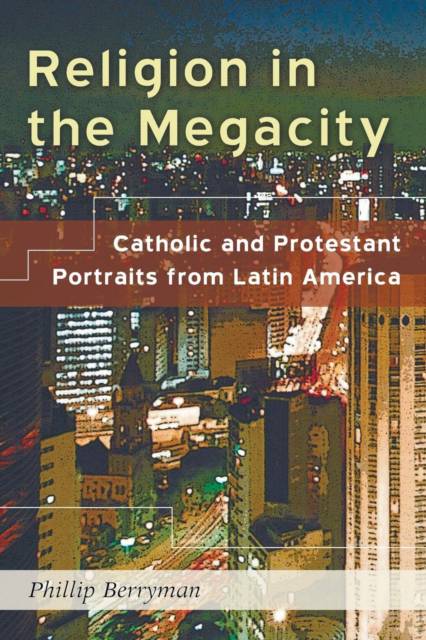
- Retrait gratuit dans votre magasin Club
- 7.000.000 titres dans notre catalogue
- Payer en toute sécurité
- Toujours un magasin près de chez vous
- Retrait gratuit dans votre magasin Club
- 7.000.0000 titres dans notre catalogue
- Payer en toute sécurité
- Toujours un magasin près de chez vous
Description
Phillip Berryman has long been recognized as one of the most insightful interpreters of contemporary Latin American religion and culture. His works 'The Religious Roots of Rebellion' and 'Stubborn Hope' have provided the best analysis of the role of Christians in revolutionary struggles in Central America. In Religion in the Megacity Berryman surveys a wider and more complex phenomenon: the new face of religious reality in urban Latin America. Berryman writes against the background of the rise of megacities--the sprawling urban centers that are the home of most of Latin America's population. In that context he contrasts Sao Paulo and Caracas. The Catholic Archdiocese of Sao Paulo, under Cardinal Arns and progressive Catholics, was a major point of resistance to military dictatorship. It is also a city in which Protestant Pentecostal churches especially have enjoyed explosive growth. Berryman's sure-footed feel for what is happening gives the reader a concrete feel for what is happening in both Protestant and Catholic communities. Caracas, Berryman shows, is a very different kind of megacity, one that a Protestant missionary called the Secular City, a place where the relative wealth and consumer lifestyle make it hard for the Gospel to take hold. Catholic and Protestant churches in Caracas face challenges quite different from those of Sao Paulo. Religion in the Megacity explores those similarities and differences within the respective cities and between them. Berryman breaks new ground in showing the way in which Catholics and Protestants face similar situations, and he does so in a dynamic, readable style that gives the reader insights from knowledgeable men and women on the ground who show that facile stereotypes about what is happening in Latin America today need to be corrected.
Spécifications
Parties prenantes
- Auteur(s) :
- Editeur:
Contenu
- Nombre de pages :
- 216
- Langue:
- Anglais
Caractéristiques
- EAN:
- 9781597529037
- Date de parution :
- 01-09-06
- Format:
- Livre broché
- Format numérique:
- Trade paperback (VS)
- Dimensions :
- 162 mm x 228 mm
- Poids :
- 308 g

Les avis
Nous publions uniquement les avis qui respectent les conditions requises. Consultez nos conditions pour les avis.






